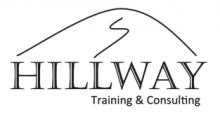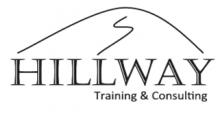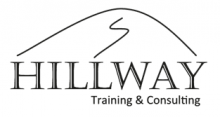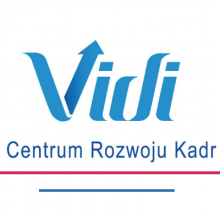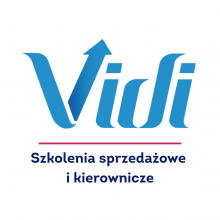Program: Conflict Management and Non-Violent Communication Training
Duration: 2 days
Objective: To develop skills in conflict management and non-violent communication, enabling participants to handle conflicts constructively, reduce tension, and foster a collaborative environment through effective and empathetic communication techniques.
Day 1: Fundamentals of Conflict Management
09:00 – 09:30 | Introduction and Opening
- Welcome participants and outline the objectives and agenda of the training.
- Introduction to conflict management: the nature of conflict, common causes, and its impact in the workplace.
09:30 – 11:00 | Understanding Conflict Dynamics
- Key elements of conflict: types, stages, and the role of emotions.
- Identifying common triggers and underlying causes of conflict in the workplace.
- Exercise: Self-reflection on past conflicts and identifying personal conflict styles.
11:00 – 11:15 | Coffee Break
11:15 – 13:00 | Conflict Management Styles and Strategies
- Overview of conflict management styles: avoiding, accommodating, competing, compromising, and collaborating.
- How to assess the situation and choose the most effective style for managing conflict.
- Exercise: Self-assessment of conflict style and adapting strategies to different scenarios.
13:00 – 14:00 | Lunch
14:00 – 15:30 | Techniques for Constructive Conflict Resolution
- Steps for resolving conflicts constructively: understanding needs, finding common ground, and generating solutions.
- The role of active listening, empathy, and open communication in conflict resolution.
- Exercise: Role-playing conflict resolution scenarios using structured techniques.
15:30 – 15:45 | Coffee Break
15:45 – 17:00 | Introduction to Non-Violent Communication (NVC)
- Overview of Non-Violent Communication (NVC): principles and benefits.
- The four components of NVC: observations, feelings, needs, and requests.
- Exercise: Practicing NVC basics — transforming common communication pitfalls into non-violent dialogue.
Day 2: Advanced Techniques in Conflict Management and NVC
09:00 – 09:15 | Recap and Reflection on Day One
- Review key learnings from Day One.
- Introduction to advanced techniques in conflict management and non-violent communication.
09:15 – 10:45 | Deep Dive into Non-Violent Communication
- Expanding on the four components of NVC: making observations without judgment, expressing feelings, identifying needs, and making requests.
- How to shift from reactive to responsive communication in conflicts.
- Exercise: NVC role-playing — practicing full NVC conversations in conflict scenarios.
10:45 – 11:00 | Coffee Break
11:00 – 12:30 | Managing Emotions in Conflict
- Understanding the role of emotions in conflicts and how they can escalate or de-escalate a situation.
- Techniques for managing your own emotions and helping others manage theirs during conflicts.
- Exercise: Emotional regulation techniques and applying them in conflict situations.
12:30 – 13:30 | Lunch
13:30 – 15:00 | Collaborative Problem Solving
- Techniques for collaborative problem solving: brainstorming, prioritizing solutions, and reaching consensus.
- How to facilitate a collaborative problem-solving session during a conflict.
- Exercise: Group activity — collaborative problem-solving in a simulated conflict scenario.
15:00 – 15:15 | Coffee Break
15:15 – 16:30 | Building a Culture of Non-Violent Communication and Conflict Resolution
- Strategies for promoting a culture of non-violent communication and constructive conflict management in the workplace.
- How leaders and team members can model and encourage these practices.
- Exercise: Developing a personal action plan for implementing NVC and conflict resolution techniques in the workplace.
16:30 – 17:00 | Closing and Summary
- Summary of key aspects of conflict management and non-violent communication.
- Q&A session and discussion of next steps for personal and professional development.
- Presentation of certificates of completion.
Participants will learn:
- Understand Conflict Dynamics and Management Styles: Gain insights into the nature of conflict, including its types, stages, and underlying causes, and learn to identify and adapt different conflict management styles according to the situation.
- Resolve Conflicts Constructively: Develop techniques for constructive conflict resolution, focusing on understanding needs, finding common ground, and generating mutually beneficial solutions.
- Apply Non-Violent Communication (NVC): Master the principles of Non-Violent Communication, learning to express observations, feelings, needs, and requests in a way that reduces tension and promotes understanding.
- Manage Emotions During Conflicts: Learn how to manage both your own emotions and those of others during conflicts, using techniques that help de-escalate tension and maintain a constructive dialogue.
- Facilitate Collaborative Problem Solving: Gain skills in facilitating collaborative problem-solving sessions, using methods like brainstorming and consensus-building to resolve conflicts effectively.
- Communicate Responsively Instead of Reactively: Shift from reactive to responsive communication during conflicts, focusing on understanding and addressing the underlying needs of all parties involved.
- Build a Culture of Non-Violent Communication: Learn how to foster a workplace culture that values non-violent communication and constructive conflict management, enhancing team collaboration and productivity.
- Implement Conflict Management and NVC in the Workplace: Develop a personal action plan for applying conflict management and NVC techniques in real-world situations, ensuring sustainable practice and ongoing improvement.
Participants will understand how to:
- Identify and manage conflicts effectively, recognizing triggers, stages, and the best approach to resolve each situation.
- Choose and adapt conflict management styles, using the most appropriate strategy for the specific context and dynamics.
- Use Non-Violent Communication techniques, including making observations without judgment, expressing feelings and needs, and making requests that foster mutual understanding.
- Manage emotions during conflicts, using techniques that help maintain composure and reduce emotional escalation.
- Facilitate collaborative problem-solving sessions, encouraging all parties to contribute to finding solutions that meet their needs.
- Respond rather than react in difficult conversations, focusing on constructive dialogue and achieving positive outcomes.
- Promote and practice non-violent communication, building a workplace environment where open, respectful, and empathetic communication is the norm.
- Create and follow a personal action plan for implementing conflict management and NVC techniques, ensuring these skills are integrated into daily interactions.
This training will equip participants with practical tools and strategies for managing conflicts and communicating non-violently, fostering a more harmonious and effective work environment.

























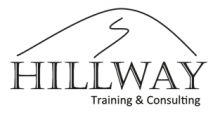
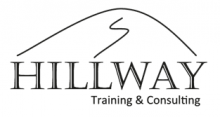
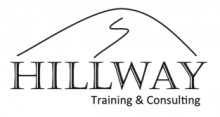
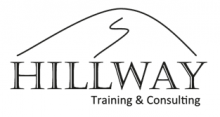
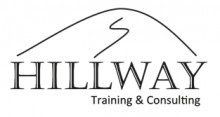

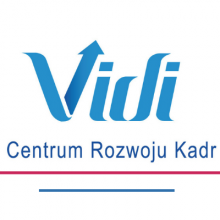
![Zarządzanie energią osobistą – czyli jak wzmocnić efektywność poprzez zarządzanie własną energią [NOWOŚĆ]](https://static.szkolenia.com/public/companies/449/458/thumb/hillway-training-consulting-szkolenia-dla-firm-1709105317.png)
